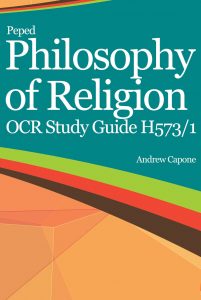Specification H573/1 Aristotle
January 6, 2018
 Aristotle is the father of empiricism, Plato of a form of rationalism called idealism. Aristotle’s empiricism finds its fruit in the utilitarianism of Mill or the attack on metaphysics of David Hume. The debate spills over into religious language with the empiricist attack on God-talk as meaningless, led by AJ Ayer in the twentieth century. Yet in Aristotle’s belief in the four causes – a teleological view of nature and of human nature, we also find the seeds fo something else – natural law moral theology which has been espoused as the official moral view of the Catholic Church. Parts of the specification below are hyperlinked to help you navigate through the argument. PB
Aristotle is the father of empiricism, Plato of a form of rationalism called idealism. Aristotle’s empiricism finds its fruit in the utilitarianism of Mill or the attack on metaphysics of David Hume. The debate spills over into religious language with the empiricist attack on God-talk as meaningless, led by AJ Ayer in the twentieth century. Yet in Aristotle’s belief in the four causes – a teleological view of nature and of human nature, we also find the seeds fo something else – natural law moral theology which has been espoused as the official moral view of the Catholic Church. Parts of the specification below are hyperlinked to help you navigate through the argument. PB
We have now produced study guides for each paper which build essay-writing (analytical and evaluative skills) step by step, and together with the handouts and marked essays on the website, provide a complete method of mastering this subject. If you need a tutor, please contact me as I have a group of experienced teachers available now. peterbaron@peped.org
1. Philosophical Language and Thought: Aristotle
Learners will study significant concepts and issues in the philosophy of religion through the works of key thinkers.
1.1 Content
the philosophical views of Aristotle, in relation to:
• understanding of reality
• the four causes
• the Prime Mover
1.2 Knowledge
• Aristotle’s use of teleology
• the material, formal, efficient and final causes
• the nature of Aristotle’s Prime Mover and connections between this and the final cause
1.3 Issues as the basis of exam questions
Learners should have the opportunity to discuss issues related to the ideas of Aristotle, including:
• comparison and evaluation of Aristotle’s Prime Mover
• comparison and evaluation of Aristotle’s use of the senses (empiricism) in their attempts to make sense of reality
1.4 Suggested scholarly views, academic approaches and sources of wisdom and authority
For reference, the ideas of Aristotle listed above can be found in:
• Aristotle, Physics II.3 and Metaphysics V.2
Further Reading: Michael Palmer’s brilliant textbook is available online. He begins with a discussion of a priori and a posteriori approaches to God’s existence.






0 Comments